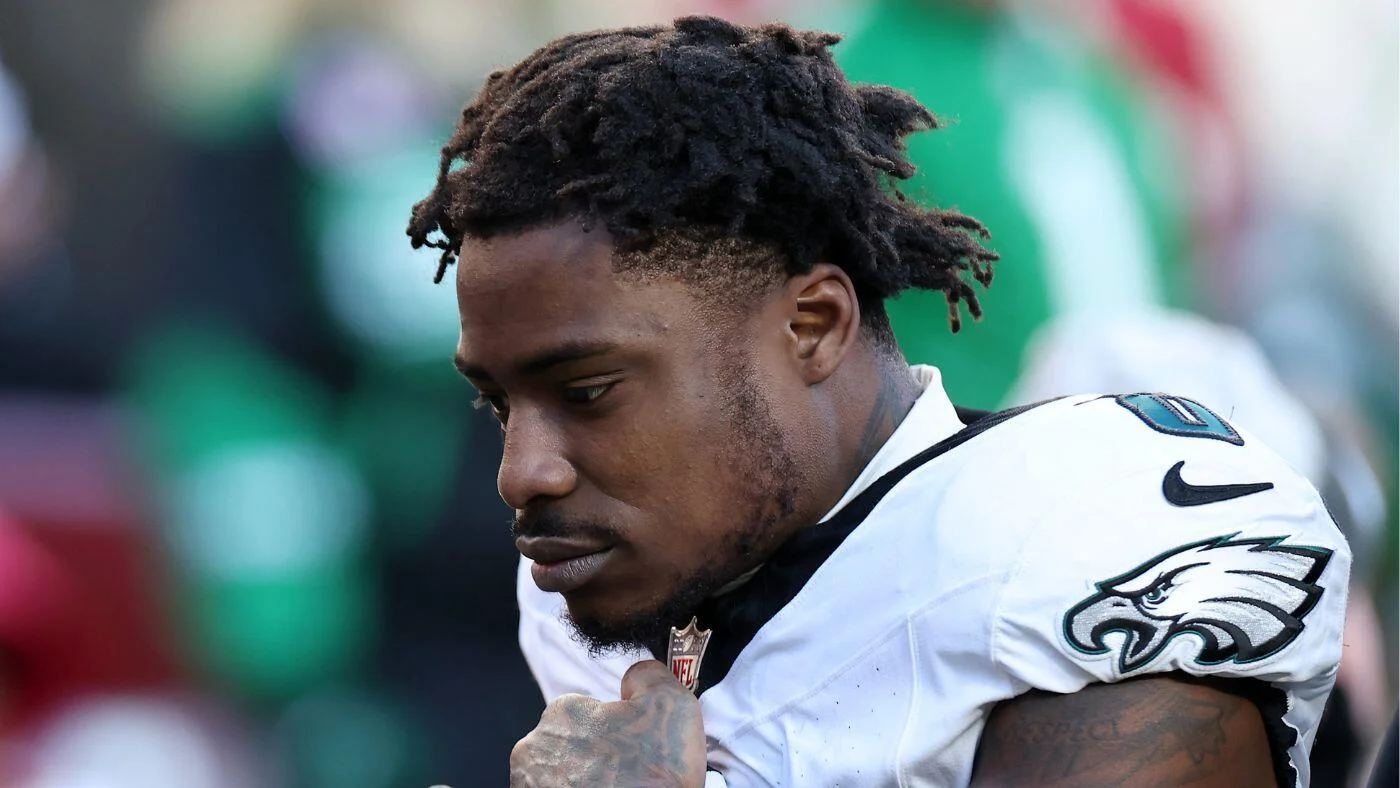**“C.J. Gardner-Johnson Says Eagles Traded Him to Texans Because They’re ‘Scared of a Competitor’ — Fires Bold Shot at Former Team”**
C.J. Gardner-Johnson has never been the type to bite his tongue. From his outspoken nature to his relentless playing style, the fiery defensive back has always made headlines both on and off the field. So it was no surprise when, following his trade from the Philadelphia Eagles to the Houston Texans, Gardner-Johnson had some pointed words for his former team. In a now-viral statement, he claimed the Eagles traded him because they were “scared of a competitor.” And with that single declaration, a new layer of drama was added to one of the NFL’s most fascinating off-field storylines.
The statement wasn’t made in passing. Gardner-Johnson seemed deliberate, measured even, when he made the claim. For a player known for his emotional approach to the game, this comment was less of an outburst and more of a thesis — a direct challenge to the Eagles organization, their culture, and perhaps their vision of leadership in the locker room. For a team that had only recently leaned on him during a Super Bowl run, the implications were heavy. Why would a franchise part ways with a player who brought intensity, experience, and undeniable playmaking ability? According to Gardner-Johnson, it wasn’t because of scheme fit or salary cap space — it was fear.
Fear, he suggested, not of his attitude, but of what his intensity represented. Competitiveness, in its purest form, has always walked a fine line between drive and disruption. To hear Gardner-Johnson tell it, the Eagles weren’t ready to embrace his edge. That accusation struck a nerve with fans and analysts alike. Some praised him for speaking his truth, suggesting he was simply standing up for himself in a league that often prioritizes control over character. Others saw it as a brash burn of a bridge that didn’t need to be set aflame.
Gardner-Johnson’s tenure in Philadelphia was short, but impactful. During the 2022 season, he was a key cog in a defense that was among the league’s most dominant units. His ball-hawking ability and swagger helped the Eagles fly to the Super Bowl. Although they ultimately fell short against the Kansas City Chiefs, few questioned the role Gardner-Johnson played in their success. Yet, despite his contributions, contract negotiations reportedly fell apart in the offseason, and he left for Detroit on a one-year deal. That alone raised eyebrows. Now, after being traded again — this time to Houston — his accusations have brought those early negotiations back under the microscope.
In Houston, Gardner-Johnson joins a young, energetic team led by head coach DeMeco Ryans. The Texans are quickly becoming one of the NFL’s most intriguing franchises, having exceeded expectations in 2024 thanks to the ascendance of quarterback C.J. Stroud and a resurgent defense. With Ryans preaching toughness and accountability, it’s no wonder Gardner-Johnson feels he’s landed in a more appreciative environment. In many ways, the Texans may offer the culture and structure he craved in Philadelphia but ultimately never found.
His comments, though, are more than just an indictment of the Eagles — they are a window into how player identity and organizational philosophy can sometimes clash. Gardner-Johnson isn’t the first intense personality to be shown the door despite on-field success. Teams often wrestle with the balance between chemistry and chaos, and it’s not uncommon for passionate players to find themselves misunderstood. His suggestion that the Eagles were “scared of a competitor” frames the trade not as a football decision, but as a philosophical one.
What makes the claim even more compelling is the context of the Eagles’ recent moves. Philadelphia has endured some growing pains since its Super Bowl appearance. A once-vaunted defense has looked less cohesive, and leadership in the locker room has shifted with the departures of key veterans. The front office, led by general manager Howie Roseman, has never shied away from bold decisions. But Gardner-Johnson’s suggestion calls into question whether the Eagles prioritize harmony over hunger — and whether that approach may be hurting them in the long run.



